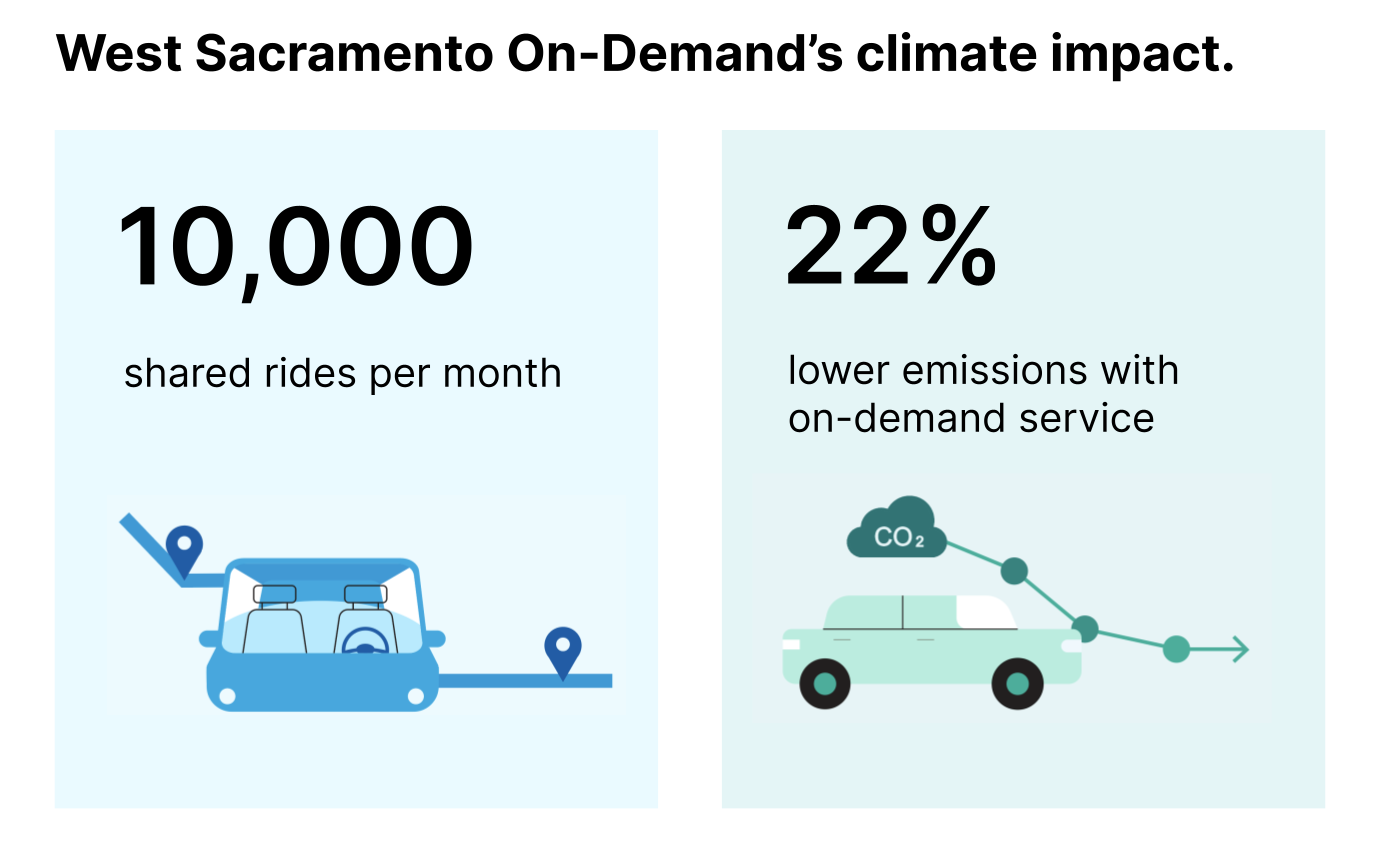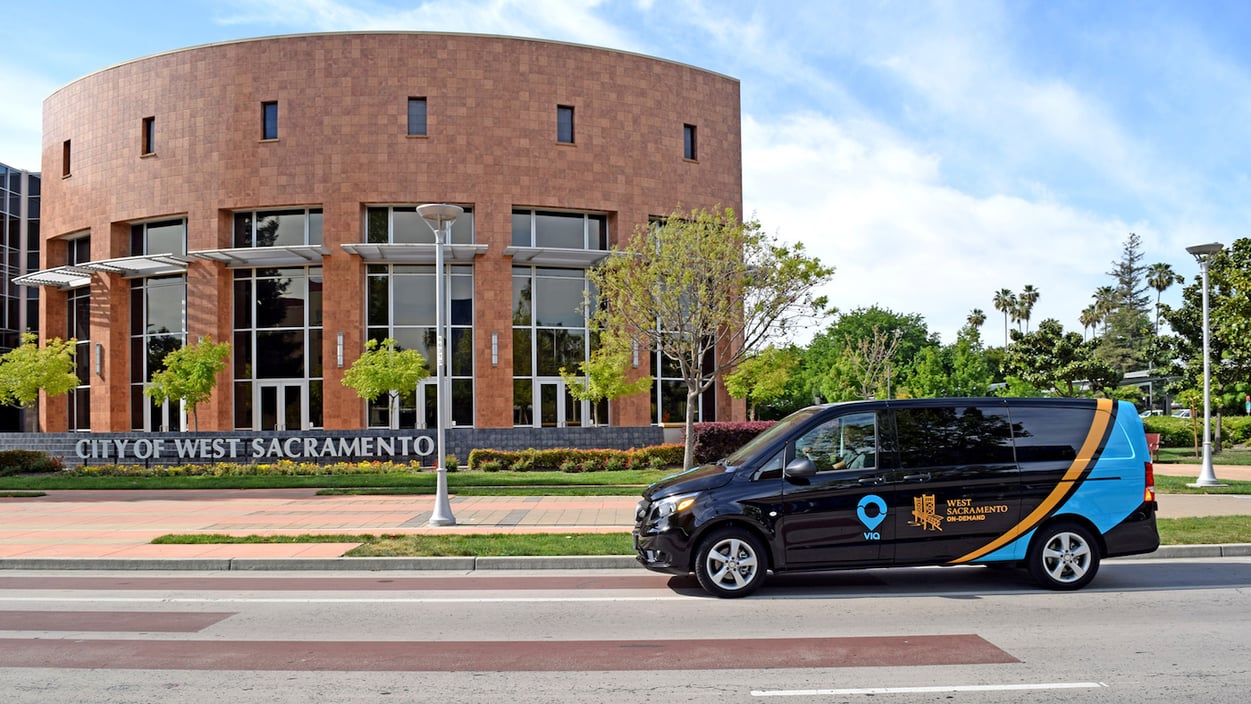When West Sacramento On-Demand launched nearly four years ago, in May 2018, the city’s goal was simple, if ambitious: to offer an alternative to private-car transportation in a city with minimal local transit services and a difficult pedestrian network. The City feared that older residents, residents with disabilities, and lower-income residents were effectively left with no transit options if they did not own a private car, and sought to bridge these significant gaps in its mobility ecosystem.
West Sacramento On-Demand quickly proved that shared, on-demand transit has a place in a car-dependent city: the service delivers 10,000 rides per month on average, to a diverse rider base. But private car travel has another clear disadvantage: higher emissions than the same trip taken on public transit. Could West Sacramento On-Demand also make an impact on the city’s carbon footprint by reducing emissions? The answer is a resounding yes: Via’s data scientists estimate that in 2021, the availability of shared, on-demand service reduced emissions by 22% when compared with previously-available transit modes.

Using rider survey data and transit density to determine the mode — private car travel, public transit, taxi and ride-hailing, walking or biking — likely replaced by each West Sacramento On-Demand trip, our team calculated the change in emissions-per-trip as a result of that mode shift. A bike trip replaced with an on-demand trip would lead to an emissions increase, but a private car trip replaced with an on-demand trip, shared with other riders, would lead to an emissions reduction. This analysis also takes into account a range of other factors, such as the empty miles on-demand vehicles drive in between trips, the fuel economy of different vehicles, and the time private vehicles spend looking for parking.
For West Sacramento, where private car travel is the dominant mode, the introduction of on-demand service has made the City more accessible and greener — a win for City residents, and for the planet.




